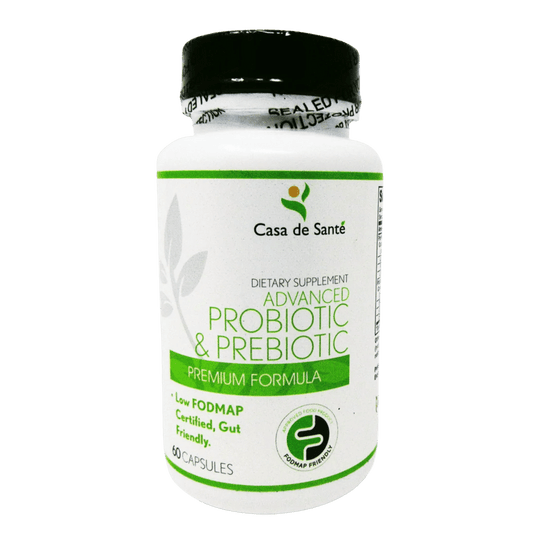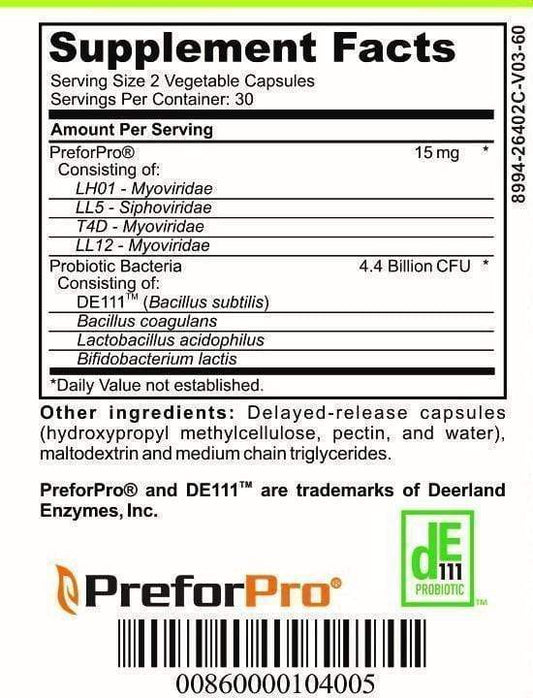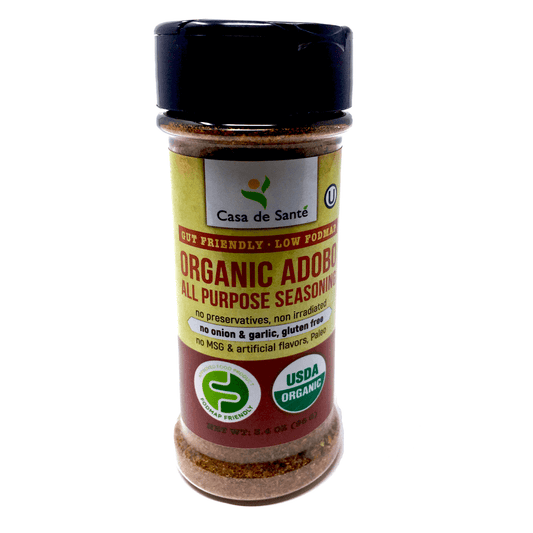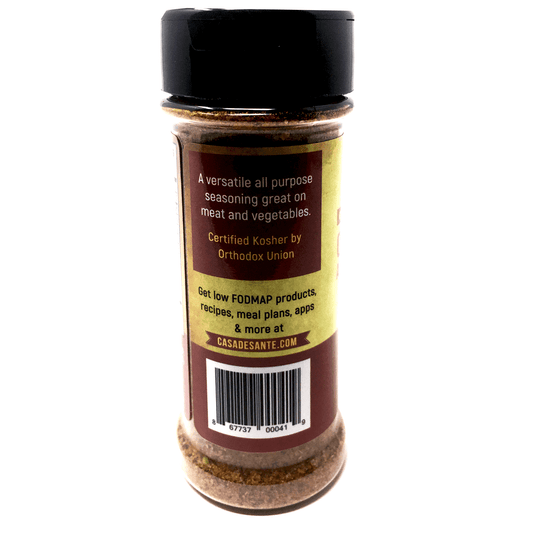Is Almond Milk Low FODMAP? A Comprehensive Guide
If you're following a low FODMAP diet to manage your digestive health, you may be wondering, "Is almond milk low FODMAP?" In this comprehensive guide, we'll explore the FODMAP content of almond milk, its nutritional value, and provide helpful tips for choosing the right milk alternatives for your low FODMAP journey. We'll also discuss how Casa de Sante can support you in taking control of your gut health with their expert team, personalized care, and specially formulated low FODMAP products.
Table of Contents
- Introduction to FODMAPs and Almond Milk
- What is Almond Milk?
- Nutritional Value of Almond Milk
- FODMAPs in Almond Milk
- Low FODMAP Milk Alternatives
- Soy Milk and FODMAPs
- High FODMAP Milk Types to Avoid
- Choosing the Right Low FODMAP Milk
- Casa de Sante: Your Partner in Gut Health
- Conclusion: Is Almond Milk Low FODMAP?
1. Introduction to FODMAPs and Almond Milk
FODMAPs (Fermentable Oligosaccharides, Disaccharides, Monosaccharides, and Polyols) are short-chain carbohydrates found in various foods that can cause digestive discomfort in some individuals, especially those with Irritable Bowel Syndrome (IBS). A low FODMAP diet aims to reduce the intake of these fermentable carbohydrates to improve gastrointestinal symptoms.
When it comes to choosing a milk alternative for a low FODMAP diet, almond milk is often suggested. But is almond milk truly low FODMAP? Let's dive in and explore the world of almond milk and its suitability for a low FODMAP diet.
2. What is Almond Milk?
Almond milk is a plant-based milk derived from almonds. It has been used for centuries, with its origins dating back to the Middle Ages in Europe and possibly earlier in the Middle East. Today, almond milk is commonly available in grocery stores and is often considered a healthy and lactose-free alternative to cow's milk.
How is Almond Milk Made?
Almond milk can be made using two main processing methods: wet processing and dry processing. In both methods, ground almonds are mixed with water, strained, and then diluted with more water. Wet processing involves soaking whole almonds in water and then grinding them, while dry processing starts with almond powder. Emulsifiers, such as lecithin, may be added to improve the texture and thickness of the milk. Some almond milk is heat-treated for shelf stability, while others are pasteurized and require refrigeration.
3. Nutritional Value of Almond Milk
Although almond milk is considered a healthier alternative to cow's milk, it's essential to understand its nutritional profile. Almond milk is generally classified as a highly processed or ultra-processed food, and its nutritional value is relatively low compared to other milk alternatives.
Protein Content
One of the main criticisms of almond milk is its low protein content. Compared to dairy and soy milk, almond milk contains significantly less protein, primarily because it has a low percentage of actual almond material.
Antinutrients in Almond Milk
Many plant-based milks, including almond milk, contain "antinutrients" that can decrease the body's ability to digest and absorb essential minerals. In almond milk, the primary concern is the presence of oxalates, which can bind to important minerals in the digestive tract and inhibit their absorption. Excessive oxalate intake can also contribute to the formation of kidney stones.
Benefits of Almond Milk
Despite its low protein content and presence of antinutrients, almond milk has several beneficial properties. Most almond milk is fortified with nutrients, such as calcium, vitamin D, and vitamin E, making it a good source of these essential nutrients. Additionally, unsweetened and unflavored almond milk is lower in calories, carbohydrates, fat, and cholesterol compared to cow's milk and soy milk, making it a suitable option for those on calorie, carb, or fat-restricted diets.
4. FODMAPs in Almond Milk
The primary FODMAP concern in almond milk is galactooligosaccharides (GOS), a type of carbohydrate consisting of glucose and galactose. Although our bodies can typically digest glucose and galactose, when they are combined in GOS, they can cause digestive issues, especially in individuals with sensitive digestive systems.
Galactooligosaccharides in Almond Milk
Recent studies and data from the US Department of Agriculture (USDA) indicate that unflavored, unsweetened almond milk contains approximately 0.04 grams of GOS per 8-ounce serving. This is well below the published low FODMAP guidelines, which recommend a total oligosaccharide content of less than 0.30 grams per serving for nut-based products. However, this data may not apply to flavored or sweetened almond milk, as the addition of flavors and sweeteners can introduce other FODMAPs.
5. Low FODMAP Milk Alternatives
Apart from almond milk, other low FODMAP milk alternatives include lactose-free cow's milk, oat milk, rice milk, hemp milk, macadamia milk, quinoa milk, and certain types of coconut milk. It's essential to be mindful of serving sizes and added ingredients when choosing a low FODMAP milk alternative.
6. Soy Milk and FODMAPs
Soy milk can be low FODMAP, but it depends on the type. Soy milk made from soy protein is low FODMAP, while soy milk made from soybeans is not. However, soy milk made from soy protein can be challenging to find, and most varieties available in stores are made from soybeans, which are high in FODMAPs.
7. High FODMAP Milk Types to Avoid
When following a low FODMAP diet, it's essential to avoid certain types of milk that are high in FODMAPs. These include cow's milk, goat's milk, condensed milk, and buttermilk, all of which contain lactose and can cause digestive issues for those sensitive to FODMAPs.
8. Choosing the Right Low FODMAP Milk
When selecting a low FODMAP milk alternative, it's crucial to read labels carefully and be aware of added ingredients that could introduce other FODMAPs. Stick to unsweetened and unflavored varieties whenever possible, and pay attention to recommended serving sizes to ensure you're consuming a low FODMAP amount.
9. Casa de Sante: Your Partner in Gut Health
Casa de Sante is a leading virtual dietitian support platform for the low FODMAP diet, IBS, SIBO, food sensitivities, celiac disease, GERD, diverticulosis, PCOS, weight loss or gain, autoimmunity, autoimmune, and digestive disorders. They offer personalized care from their expert team of registered dietitians and health coaches, all from the comfort of your home.
Discover their specially formulated low FODMAP products, including seasonings, protein powders, and supplements, designed for sensitive digestive systems. Enjoy delicious meals with personalized meal plans based on your preferences and intolerances.
Uncover the root causes of your digestive issues with their comprehensive food sensitivity testing and GI labs. Stay on track with their convenient gut health apps that help you monitor symptoms and follow your personalized diet.
Access valuable educational resources, recipes, and support for a healthy digestive system. Their accessible virtual care considers your symptoms, labs, diet, and lifestyle.
Take the first step towards relief with a free gut health assessment. Visit www.casadesante.com now and start your journey to better gut health.
10. Conclusion: Is Almond Milk Low FODMAP?
In conclusion, unflavored and unsweetened almond milk is indeed low FODMAP, making it a suitable option for those following a low FODMAP diet. However, it's essential to be mindful of its nutritional profile and consider other low FODMAP milk alternatives if needed.
By choosing the right low FODMAP milk and working with a supportive platform like Casa de Sante, you can better manage your gut health and enjoy a more comfortable and symptom-free life.
























